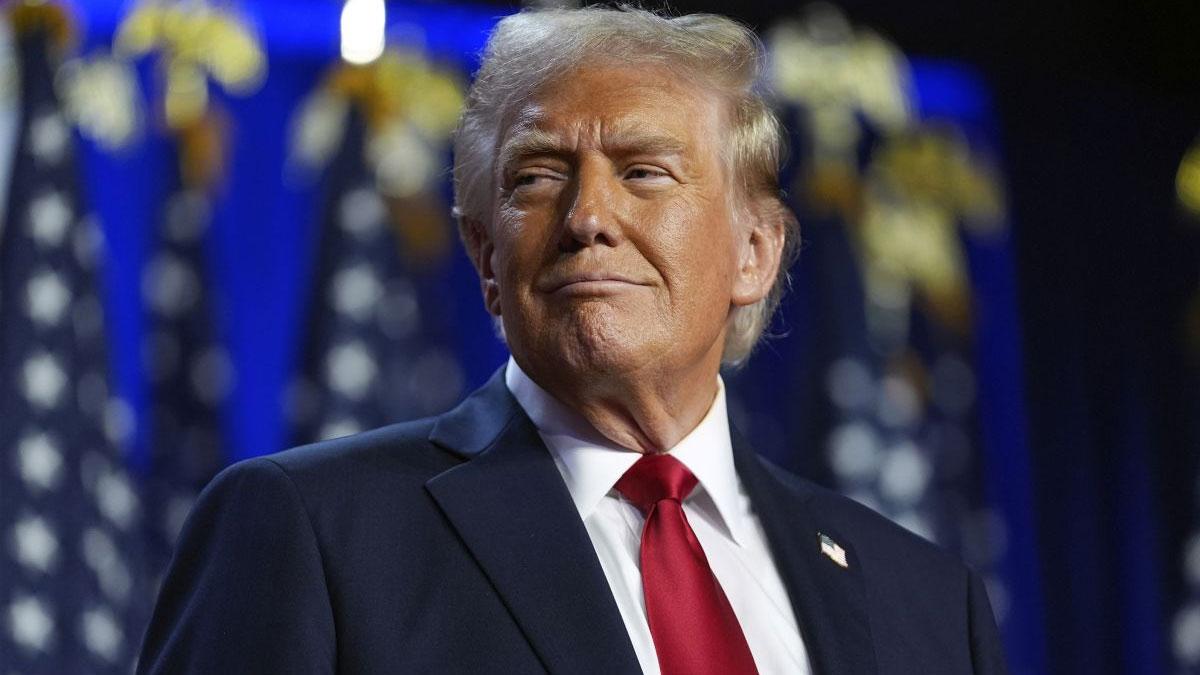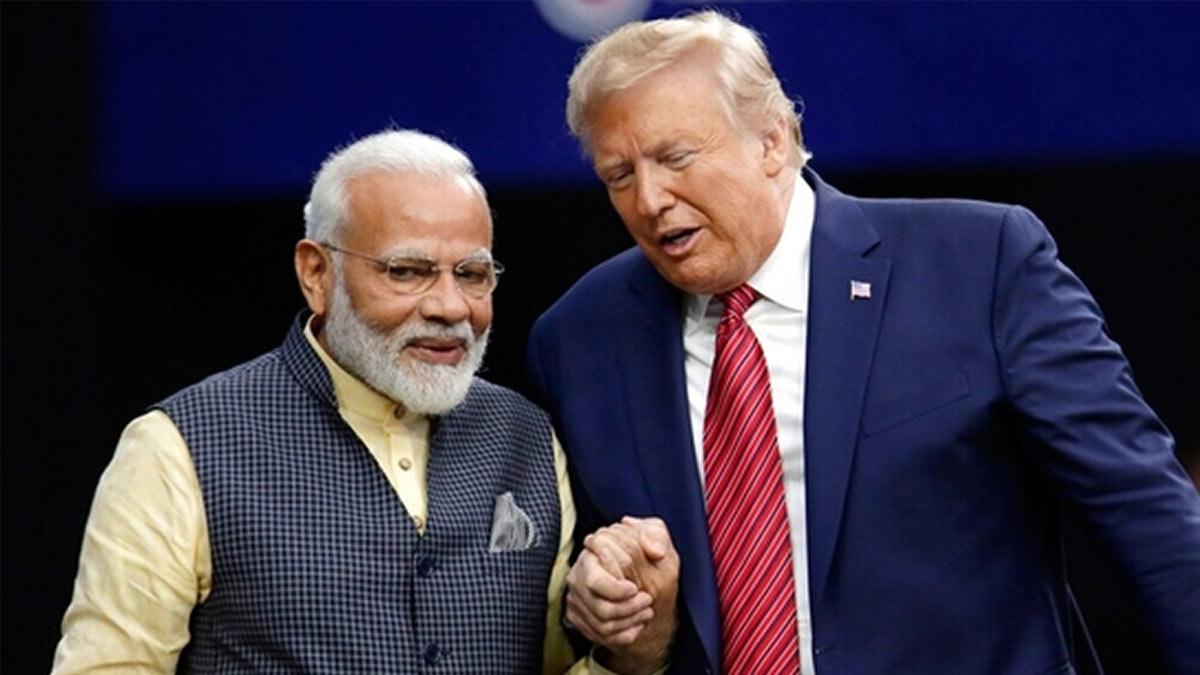President Donald Trump on Tuesday (March 25, 2025) waved aside fears of a security gaffe over texting classified military attack plans against Yemen's Houthis to a group chat that unwittingly included a reporter.
Calling it only "the only glitch in two months" of his presidency, Trump played down the gravity of the matter even as Democratic lawmakers blasted the move as evidence of White House incompetence with sensitive information.
During an NBC News interview, Trump contended that the error "turned out not to be a serious one" and again expressed confidence in National Security Adviser Mike Waltz.
As reported by The Atlantic on Monday, Waltz had inadvertently added the editor-in-chief of the magazine, Jeffrey Goldberg, to a group chat with 18 senior officials about details of the strike.
"Michael Waltz has learned a lesson, and he's a good man," Trump said, though he intimated that the error might have been caused by one of Waltz's staff. "It was one of Michael's people on the phone. A staffer had his number on there."
Use of Signal App Sparks Criticism
The announcement that the administration utilized the secure messaging app Signal to debate a classified military mission has prompted outrage among Democratic legislators. Even though the White House has maintained that nothing classified was communicated, opposition figures have expressed alarm at the dangers of communicating national security issues on an open platform.
Waltz himself expressed uncertainty about how Goldberg’s number ended up in the chat. “This one in particular, I’ve never met, don’t know, never communicated with,” he stated on Tuesday.
Later, while speaking on Fox News Channel’s The Ingraham Angle, Waltz admitted he had set up the chat and that White House technical experts were investigating how Goldberg's contact “may have been sucked in.”
“We made a mistake. We’re moving forward,” he said, taking “full responsibility” for the incident.
Trump’s Mixed Response
Trump continued his attacks on The Atlantic and Goldberg while offering mixed signals about potential changes in how his administration handles sensitive information.
We won't be using it much" in the future, Trump stated of Signal. But he also came to the defense of practicality of distant communications, stating that "when you're not sitting in the Situation Room with no phones on, which is always the best, frankly, this is one of the prices you pay.
If it were up to me, everyone would be all sitting in one room together. The room would be lined with solid lead walls and a lead ceiling and lead floor," Trump said.
Intelligence Officials Face Tough Questions
Among the reportedly included in the Signal conversation was Director of National Intelligence Tulsi Gabbard, who testified at a Senate Intelligence Committee hearing on Tuesday that she was abroad when the exchange took place. She refused to say, however, if she used a personal or government device, referencing an ongoing White House National Security Council review.
CIA Director John Ratcliffe, who had participated in the conversation, came under intense questioning from lawmakers.
"Director Ratcliffe, was this a massive error, right?" Democratic Senator Jon Ossoff of Georgia asked.
After a moment's hesitation, Ratcliffe shook his head. "No," he said.
As Ossoff pushed him harder, the two talked at cross-purposes before the senator interrupted him.
This is a travesty," Ossoff stated. "This is completely unprofessional. No apology has been forthcoming. No acknowledgment of the seriousness of this mistake has been made."
Similarity to Clinton Email Scandal
The scandal has been compared to the 2016 presidential election campaign in which Trump campaigned for the prosecution of then-Democratic nominee Hillary Clinton for her use of a private email server for sensitive communications. Although the FBI investigated, it did not ultimately bring a recommendation for charges.
Clinton was one of those firing at the Trump administration this week.
"Got to be kidding me," she posted on X (formerly Twitter), posting The Atlantic article and an eyes emoji.
Trump himself was once before in legal jeopardy for mishandling classified materials at his Mar-a-Lago estate, though the charges were ultimately dismissed.
White House Pushes Back
Despite the controversy, administration officials have maintained that the Democratic backlash is exaggerated.
Ratcliffe and Gabbard both testified at the hearing that the texts were free of classified information about the U.S. military attack. But The Atlantic reported that the messages did contain precise information about weapon systems, target sites, and attack times—though it did not release those details.
Gabbard dodged when asked whether such information qualifies as classified. "I punt to the secretary of defense, the National Security Council, on that one," she replied.
Ratcliffe seconded the idea, propounding that Defense Secretary Pete Hegseth would have final jurisdiction over whether information shared in the chat was or wasn't classified.
When approached about the subject shortly after publication of The Atlantic article, Hegseth did not elaborate much.
"Nobody was sending war plans by text, and that is all I have to say about that," he said in response to questions from the press on Monday before leaving on an Indo-Pacific tour.
Demands for Accountability
Democratic lawmakers were not satisfied, insisting that the incident revealed a cavalier disdain for national security.
"If this information were to get out, American lives could be lost," Senator Mark Warner cautioned. "If the Houthis possess this information, they could reposition their defense systems."
Waltz, during his Fox News appearance, argued that although the information was not classified, it ought to have been kept confidential. "I certainly want our deliberations to remain confidential," he added.
Responding to queries posed by Senator Ron Wyden of Oregon, both Gabbard and Ratcliffe consented to engage in an audit looking into the administration's usage of Signal for official communications.
Wyden, however, argued that stronger consequences were necessary. “I’m of the view that there ought to be resignations,” he stated.
FBI Investigation Under Consideration
FBI Director Kash Patel, also at the hearing with Ratcliffe and Gabbard, told him he was briefed on the matter only that day and couldn't yet verify whether the FBI had opened an investigation. Warner insisted that Patel report back by the end of the day.
The White House, meanwhile, called the row over a political stunt.
In a release, the administration referred to criticism as a "coordinated effort to distract from the successful actions taken by President Trump and his administration to make America's enemies pay and keep Americans safe."
Signal's Role in Government Communications
Signal, a secure messaging app, provides secure text messaging, voice calling, and video calling. The encryption algorithm ensures that a third party cannot intercept communications, making it possible for messages to be decrypted only by the recipient and sender.
The platform's encryption technology is open source and can be scrutinized by the public, with modifications also possible. The same encryption algorithm is used by WhatsApp, which is a Meta-owned messaging service.
Government personnel have previously used Signal to make internal coordination arrangements, such as scheduling secretive meetings.
Yet Senator Angus King from the Democratic party was in doubt about the claims of Ratcliffe and Gabbard that there were no classified information within the chat.
"It's difficult for me to believe targets and timing and weapons would not have been classified," King replied.
Read also| Bangladesh Army Dismisses Reports of 'Emergency Meeting' of Generals as Baseless
Read also| Russia Rules Out Immediate Putin-Trump Talks but Keeps Door Open


















